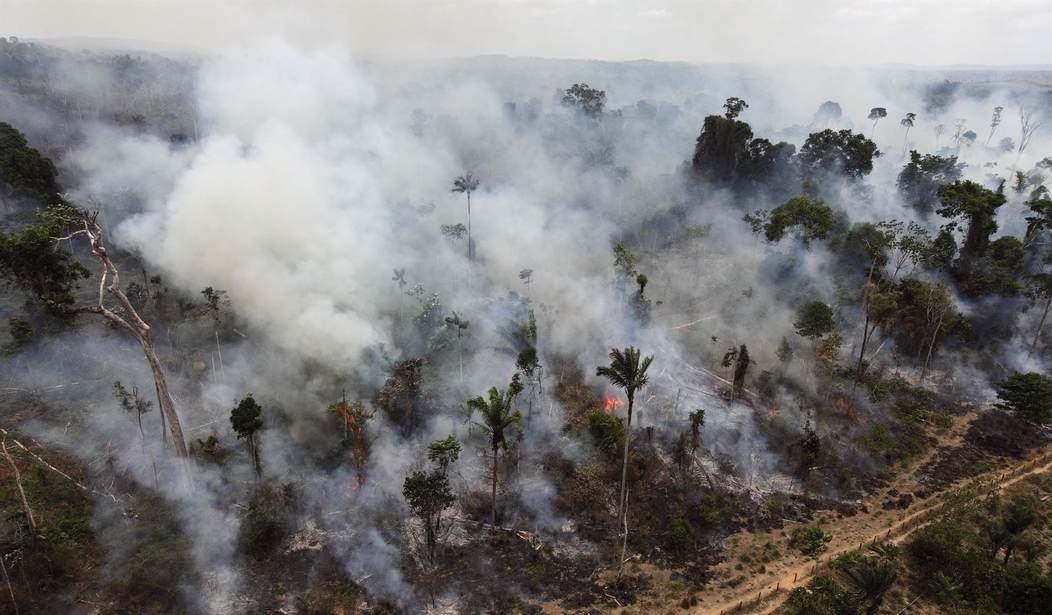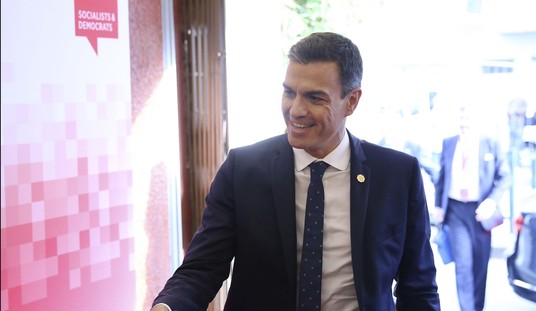We are currently experiencing a series of heatwaves in the northern hemisphere that are setting new records for high temperatures. This is producing the usual rounds of exclamations about global warming, climate change, and all of the debates that go along with this subject. (Al Gore is expected to weigh in on the news as soon as he completes his current private jet flight to lecture people in Europe.) Responses on social media this week have run the gamut from “the sky is falling” to, “yes, it sometimes gets hot during the summer.”
While many will continue to shout about fossil fuels and pipelines, however, there is one very serious problem that definitively impacts global temperatures that is not receiving nearly as much attention. And it’s an issue where progress could be made far more quickly and cheaply than any sort of reimagining of our energy grid. I’m speaking, of course, about the massive deforestation that continues to take place around the globe. Tree cover cools the ground (and the air) that remains in the shade. As a bonus, trees create more oxygen and extract carbon dioxide from the environment. But our largest forests continue to be razed for burned, often illegally. That’s what is still happening in Brazil this year and while the Brazilian government is well aware of it, they are doing almost nothing about it. (Associated Press)
Environmental criminals in the Brazilian Amazon destroyed public forests equal the size of El Salvador over the past six years, yet the Federal Police — the Brazilian version of the FBI — carried out only seven operations aimed at this massive loss, according to a new study.
The destruction took place in state and federal forests that are “unallocated,” meaning they do not have a designated use the way national parks and Indigenous territories do. According to official data, the Brazilian Amazon has about 580,000 square kilometers (224,000 square miles) of forests in this category, or an area almost the size of Ukraine.
As Brazil has repeatedly legalized such invasions, these public forests have become the main target for criminals who illegally seize land.
This is atrocious. Multiple studies agree that nearly 20% of the Amazon rainforest has been destroyed in the past four decades, and little of it has been replanted. Much of the burning and cutting has been officially approved by the governments of countries like Brazil. Even more is done illegally by thieves seeking to sell the timber or take over the land. But like most South American governments, Brazil is infamous for official corruption. If there is someone making money off of a given activity and part of that money is finding its way into the pockets of politicians, most will turn a blind eye.
The destruction isn’t limited to the Amazon. Wildfires are still raging in the United States and they are springing up increasingly in Europe as well. Forested lands are literally going up in smoke and those lost trees are rarely replanted in any significant numbers.
It doesn’t have to be this way, however. Unlike efforts to make the world run on wind energy or treat carbon emissions as a taxable sin, renewing the world’s forests is an activity that is well within our grasp. We know how to plant trees. It’s not a mystery. And it doesn’t cost very much when done on a large scale. You could probably plant several hundred million trees in the United States (or Brazil or anywhere else) in a single year for less than a billion dollars. That’s less money than we seem to be shipping out to Ukraine on a monthly basis. And the impact would be felt within the first couple of years, not decades down the road.
I’m normally not one for imposing federal mandates or new fiscal policies to address problems, but in this case, I would make an exception. It would take little effort to ensure that every tree being cut down in the United States is replaced by two new trees being planted. If we have to subsidize such a program to avoid driving up prices, so be it. As I said, it wouldn’t cost all that much. As far as other countries go, particularly Brazil and the other nations containing the Amazon rainforest, we have some muscles we could flex in that arena. We should tie foreign aid money to monitored compliance with laws against illegal deforestation and subsidized reforestation of areas that have already been cleared.
In a matter of a few years, I assure you that the temperatures would begin to come down and the world would simply be a more pleasant place. This is within the realm of possibility today, not in 2050 or 2100. There is already an organization up and running that is trying to plant a trillion trees. Nature knows how to heal itself, but with this many people on the planet, it needs some help. And who is opposed to trees? Almost nobody. This would be a political winner that everyone should be able to get behind. And yet we’re still sitting on our hands and arguing over windmills.








Join the conversation as a VIP Member